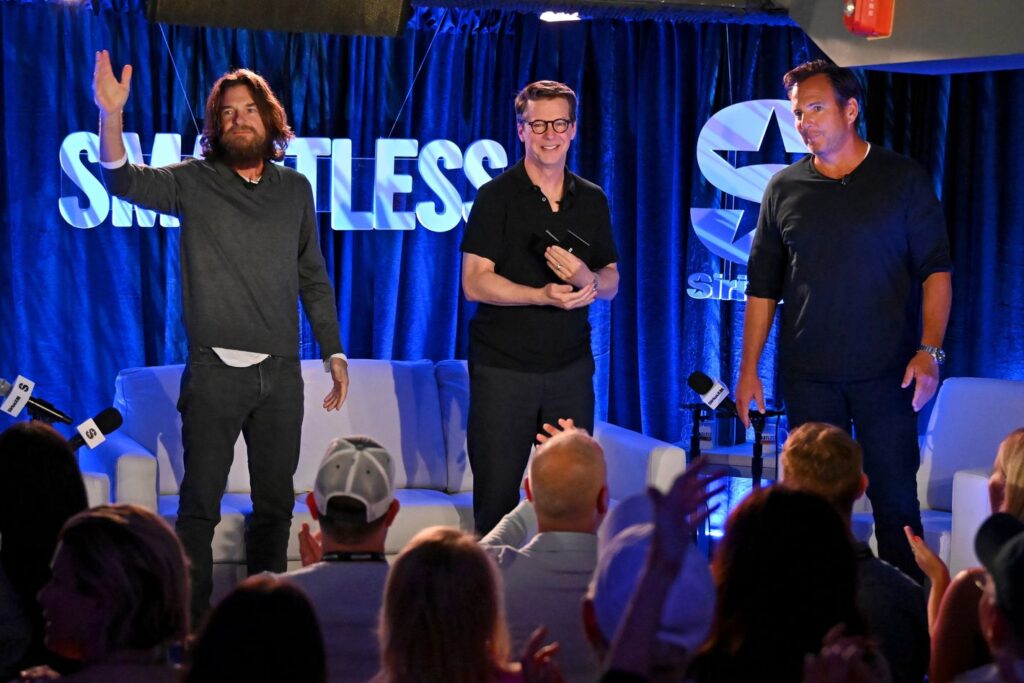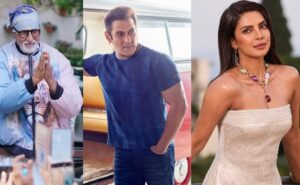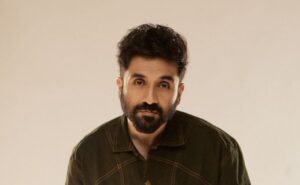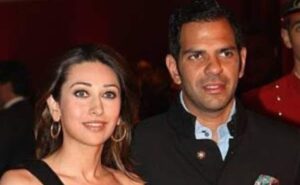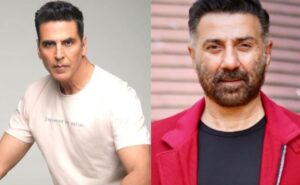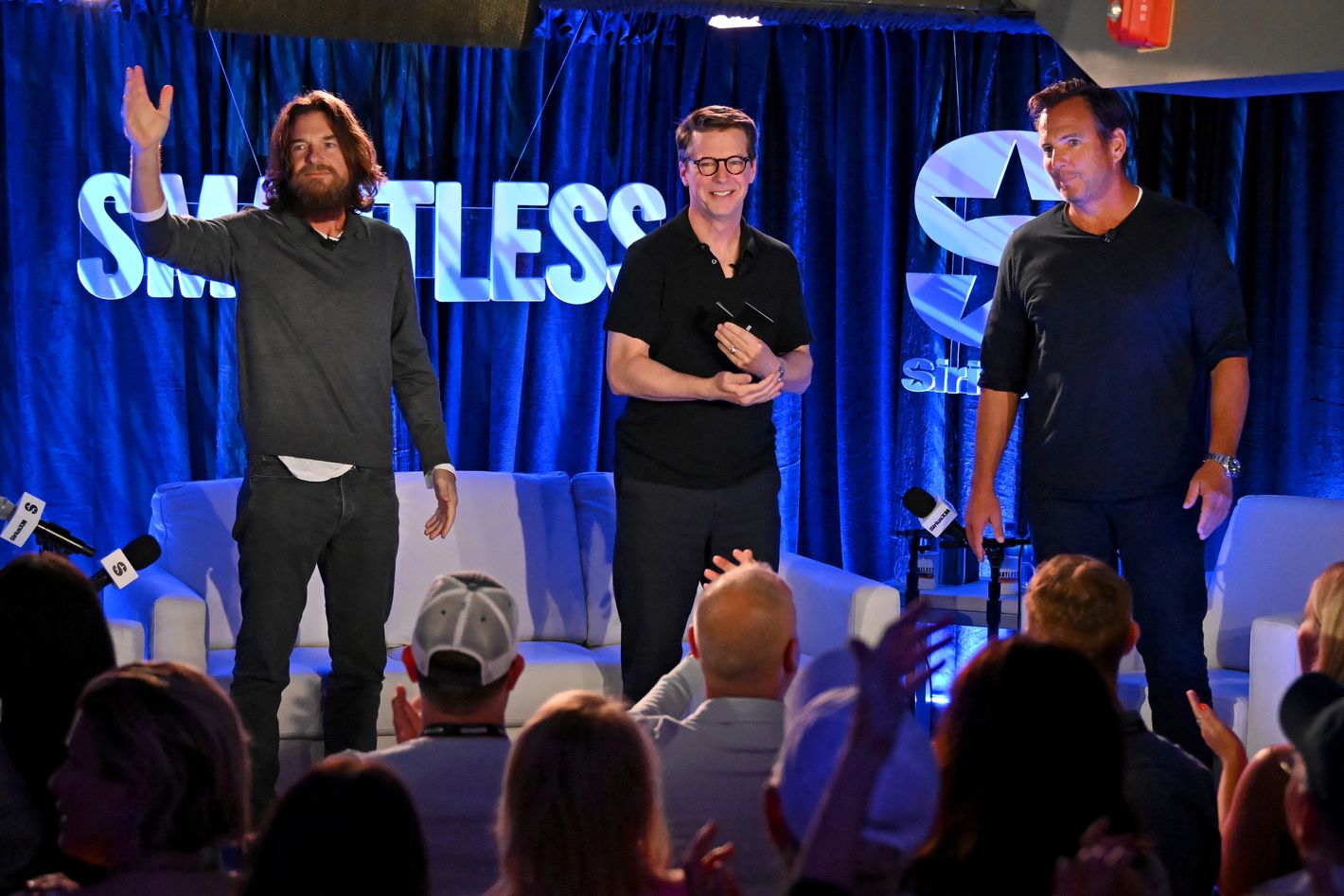
This morning, a press release announced the news: SmartLess, the popular podcast hosted by actors Will Arnett, Sean Hayes, and Jason Bateman, has a new business venture. SmartLess Mobile, a new mobile-service provider, will offer “a new kind of wireless service: direct-to-consumer, data-sane, and refreshingly BS-free.” The idea is that most consumers are probably on Wi-Fi most of the time, which means they’re likely paying for expensive unlimited-data plans they don’t actually need. SmartLess Mobile’s plans, which will be cheaper and undoubtedly much less unlimited, can provide a helpful new option for the phone-using populace. The press release deploys the SmartLess hosts for color commentary to really help nail the pitch. “If your phone bill knew how often you’re on Wi-Fi, it would be embarrassed,” Hayes says. Bateman helpfully points out that SmartLess’s millions of listeners usually tune in on their phones, so “extending the SmartLess brand into mobile is a logical next step.”
Not to put too fine a point on it, but the existence of SmartLess Mobile is so grim that reading the press release feels akin to reading an apocalyptic prophecy. It’s rivers of fire and then rains of frogs and then here come the Four Horsemen, passing out SmartLess Mobile contracts as they stampede through town. What rough wireless provider, its hour come round at last, slouches toward Los Angeles to be born?
It’s not hard to imagine why they may think this is a good idea. Two years ago, Ryan Reynolds sold Mint Mobile to T-Mobile for $1.3 billion dollars, which suggests there’s a huge market for budget-level wireless providers with celebrity spokesmen. The question is why this particular celebrity business venture feels so bleak in a landscape already littered with celebrity tequilas, celebrity cosmetics, celebrity baby food, celebrity shapewear, celebrity fashion, and celebrity headphones. We have become so inured to products like Cardi B’s Whipshots and the dating app Rebel Wilson launched that it seems long past the point when a new celebrity brand could really move the needle. So why does the name SmartLess Mobile feel so foreboding?
The first issue is with SmartLess, as both a podcast and a brand extension. SmartLess has always been a celebrity-hangout chat show — one that has self-identified somewhere between These three guys are dumb, but they like learning!; These actors you admire are actually very relatable, we swear; and People like it when we keep this thing loose, right? Despite the desperate reach of that Bateman quote from the release, none of this is an obvious or even tenuously reasonable connection to becoming a phone-service provider. These three actors who like to complain about gaining weight and neg each other about their careers are now offering improbably good deals on phone service is not an easy intuitive leap. Customers use phones for all kinds of things, including playing Pokémon Go, calling an ambulance, and ordering DoorDash. Nothing about any of those activities suggests their parent providers — who specialize in online gaming, emergency services, and food delivery — should also become telecom companies.
But the real core of the discomfort lies in how nakedly, unabashedly cynical it feels. Celebrity brands are often about luxury, prestige, or authenticity; products like cosmetics and liquors coast off fun and superficialities. They are purchases to make after the groceries have been bought and the bills have been paid, and the reason to buy the Jessica Alba–founded Honest Company diapers rather than Target’s Up&Ups is because you’ve decided to pay the extra dollar for something plant based, eco-conscious, and paraben free. Celebrities are for Fabletics and Casamigos and high-quality concealers; celebrities are not for the basic requirements of being a functional person in a world that no longer provides easy access to phone booths, maps, or reliable public transportation. Dax Shepard should not be checking your home’s water meter. Jameela Jamil should not become a natural-gas supplier. Paying your electric bill should not be a choice between PSE&G and Amy Poehler’s new nationwide system of aboveground power lines courtesy of Good Hang Energy. SmartLess Mobile feels like an absurd intrusion into everyday life precisely because it’s so gruesomely, coldly pragmatic.
It’s not all that meaningful in an era when hypocrisy has lost all its sting, but it’s worth asking, Will the hosts of SmartLess use SmartLess Mobile? Do they have lives that accommodate cheap limited-data plans? Do they have access to their work Wi-Fi all the time so they don’t need to use Google Maps or to download PDFs to review on their commute or to stream music while they work out? If a single SmartLess episode clocks in at about 60 megabytes, how many episodes of SmartLess can one listen to on a monthly SmartLess Mobile plan? (Does Reynolds actually use Mint Mobile?) All of it’s horribly depressing, or at least it will be if SmartLess Mobile offers enough data to load the news.
Related
Please, celebrities, just make more tequila.

